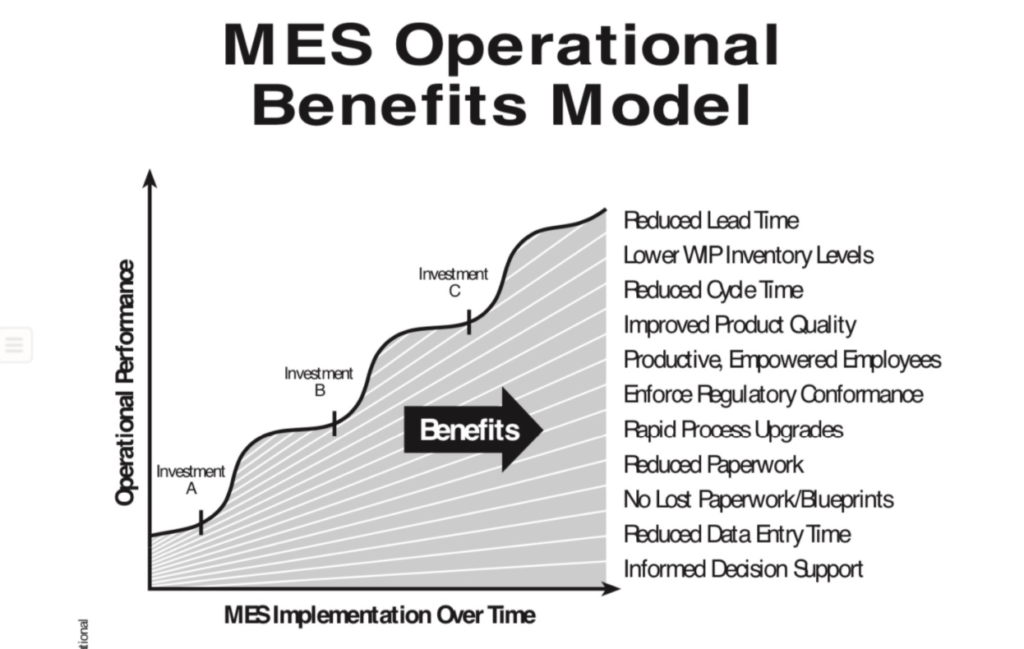MES System – Manufacture Execution System
What is the MES system?

MES’s position in enterprise information systems
- Enterprise Resource Planning (ERP) – includes financial delivery systems, order management, production planning and materials, and related functions.
- Supply Chain Management (SCM) – includes functions such as forecasting, distribution and logistics, transportation management, e-commerce, and advanced planning systems.
- Sales and Service Management (SSM) – includes software for sales force automation, product configuration- testers, service quotes, product returns, and more.
- Product and Process Engineering (P&PE) – includes computer-aided design and manufacturing (CAD / CAM), process modeling, and product data management (PDM).
- Control – typically combined hardware / software systems such as distributed control systems (DCS), programmable logic controllers (PLCs), distributed digital controls (DNCs), supervisory control, and Other computerized process control (SCADA) and process control systems designed to control how products are manufactured.
- Manufacturing Execution System (MES) – includes information systems throughout the factory that provide information to efficiently execute operations to meet business goals.
Most companies need some functionality from each of these six to be successful in their marketplace. The range and detailed functionality required from each application category can vary widely based on the process mode (continuous, batch, discrete, assembly, or mixed production processes) and service business. joint (make-to-order, repeat, do-to-order, assemble-order, design-order). The functionality and products of MedIDs are often – but not always – very different according to the process and the way it is sold.

Production Enforcement System (MES) Benefits
- Reduce production cycle time by an average of 45%;
- Reduce data entry time, typically 75% or more;
- Reduced work in progress (WIP) averaged 24%;
- Reducing paper work between work shifts by an average of 61%;
- Reduce average lead time by 27%
- Reduce paperwork and blueprint loss on average 56%
- Reduce product defects on average 18%.
MedID offers significant benefits for many manufacturers, even when installing extension software of other types. This is partly because MES functions focus on the core value-adding processes of a manufacturing company – the realization of the manufacturing process. So while most systems focus on planning how things will work, MES focuses on improving how things are actually working. MES applications improve the efficiency of factory operations and help plant employees make the right decisions.








InfoAsia Việt Nam trở thành nhà cung cấp dịch vụ phần mềm số hóa nhà máy sản xuất cho thương hiệu giày hàng đầu thế giới NEW BALANCE
Công ty TNHH Mây Tre Hà Linh
SAP ERP MES and IOT Project for FVIV Factor
Buwon Industry Co, Ltd
KANGLONGDA VIETNAM PROTECTION TECHNOLOGY COMPANY LIMITED
Shini Group
TA TING PLASTIC (HAI DUONG ) CO., LTD
CÔNG TY TNHH MTV BIÊN HOA SCM